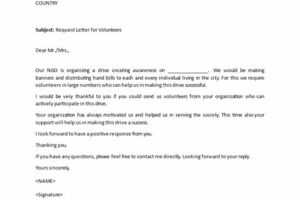Table of Contents
Looking to make a difference in your community? Join our literacy programs volunteer team and help improve the reading and writing skills of individuals in need. Your time and dedication will contribute to empowering individuals and promoting literacy for a brighter future. Sign up today and be a part of this rewarding experience!
Volunteering for literacy programs is an incredible opportunity to make a lasting impact on the lives of individuals and communities. With a passion for education and a desire to help others, volunteers play a crucial role in promoting literacy skills and fostering a love for reading. Whether it’s tutoring struggling students, leading book clubs, or organizing literacy events, these dedicated individuals are at the forefront of empowering learners of all ages and backgrounds. By dedicating their time and expertise, literacy program volunteers create a nurturing environment where individuals can develop essential reading and writing abilities, opening doors to a world of knowledge and opportunities.
The Importance of Literacy Programs Volunteer
Literacy is a fundamental skill that plays a crucial role in an individual’s personal and professional development. Unfortunately, there are still millions of people around the world who struggle with illiteracy. To combat this issue, literacy programs rely heavily on the support of volunteers. These individuals selflessly dedicate their time and expertise to help others acquire reading, writing, and communication skills. In this article, we will explore the significance of literacy programs and the impact that volunteers can have in transforming lives through education.
1. Addressing the Global Literacy Crisis
The global literacy crisis remains a significant challenge, with approximately 773 million adults worldwide unable to read or write. Literacy programs aim to bridge this gap by providing free education and resources to those in need. Volunteers play a vital role in these programs, helping to expand their reach and impact. By offering their time and knowledge, volunteers contribute to the overall mission of improving literacy rates and empowering individuals to lead more fulfilling lives.
2. Enhancing Education Systems
Volunteers in literacy programs not only assist individual learners but also contribute to the broader education system. By working closely with teachers and educators, they provide valuable support and resources that enhance the quality of education. Whether it’s helping develop curriculum materials, organizing workshops, or offering one-on-one tutoring, volunteers strengthen the foundations of education and create a more inclusive learning environment.
3. Training and Skill Development
Volunteering in literacy programs can be a valuable opportunity for personal growth and skill development. Volunteers receive training on various teaching techniques, communication strategies, and literacy assessment methods. These skills not only benefit the learners but also enhance the volunteers’ own abilities. The experience gained through volunteering can be applied in various professional settings, making these programs an excellent platform for career development and continuous learning.
4. Fostering Empathy and Understanding
Engaging with individuals who are overcoming literacy challenges allows volunteers to develop empathy and understanding towards those facing difficulties. By witnessing firsthand the determination and resilience of learners, volunteers gain a deeper appreciation for the power of education. This heightened awareness not only positively impacts their interactions within the program but also extends to their personal and professional relationships, creating a more compassionate society overall.
5. Creating Stronger Communities
Literacy programs rely on volunteers to create a positive impact within communities. By helping individuals acquire essential literacy skills, volunteers contribute to breaking the cycle of poverty and empowering individuals to become active members of society. This empowerment ripples outwards, creating stronger communities that are better equipped to address social, economic, and political challenges. Through volunteerism, communities become more united and supportive, fostering an environment of growth and opportunity.
6. Inspiring Lifelong Learning
When volunteers engage with learners in literacy programs, they instill a love for learning that extends beyond basic literacy skills. By providing mentorship and encouragement, volunteers inspire individuals to continue their education and pursue lifelong learning. This motivation can lead to further educational opportunities, personal development, and improved career prospects. Volunteers have the power to ignite a passion for knowledge that can transform lives and shape the future of communities.
7. Volunteer Recognition and Appreciation
Volunteering in literacy programs is a noble act that deserves recognition and appreciation. Many organizations and communities acknowledge the invaluable contributions of volunteers through various means, such as certificates of appreciation, awards, or public acknowledgments. Recognizing volunteers not only promotes their efforts but also encourages others to join these programs, creating a domino effect that amplifies the impact of literacy initiatives.
8. Overcoming Barriers and Challenges
Volunteering in literacy programs can present its own set of challenges, including language barriers, limited resources, and cultural differences. However, these obstacles can be overcome through effective communication, collaboration, and a willingness to adapt. Volunteers learn to be resourceful and innovative in finding solutions, further developing their problem-solving skills. By overcoming these challenges, volunteers demonstrate their dedication to the cause and inspire others to persevere in the face of adversity.
9. Networking and Building Connections
Volunteering in literacy programs provides an excellent opportunity for networking and building connections with like-minded individuals. Volunteers often collaborate with teachers, educators, and other professionals who share a passion for education and social change. These connections can lead to new friendships, professional partnerships, and even future career opportunities. The sense of community and support that arises from these relationships further enhances the volunteer experience and encourages long-term commitment.
10. Leaving a Lasting Legacy
By volunteering in literacy programs, individuals have the opportunity to leave a lasting legacy. The impact they make on learners’ lives extends far beyond the duration of their service. The skills, knowledge, and confidence gained by learners through the support of volunteers will continue to influence their personal and professional journeys. Volunteers become catalysts for change, leaving an indelible mark in the fight against illiteracy and contributing to a more educated and empowered world.
In conclusion, literacy programs rely heavily on the dedication and commitment of volunteers. By volunteering in these programs, individuals can make a significant difference in addressing the global literacy crisis, enhancing education systems, and fostering empathy and understanding. Through their selfless actions, volunteers inspire lifelong learning, create stronger communities, and leave a lasting legacy. Volunteering in literacy programs is not only beneficial to the learners but also offers personal growth, skill development, and networking opportunities for the volunteers themselves. Together, we can work towards a more literate and equitable world.
Introduction to Literacy Programs Volunteer
Being a literacy programs volunteer offers a unique opportunity to make a meaningful impact in the lives of individuals seeking to improve their reading and writing skills. Through your involvement, you can help bridge the literacy gap in your community and foster lifelong learning. This article aims to highlight the key aspects of volunteering for literacy programs and the transformative effects it can have on both volunteers and learners.
Importance of Literacy Programs
Literacy is not only an essential skill but also a fundamental human right. As a literacy programs volunteer, you will play a crucial role in empowering individuals by equipping them with the ability to read and write. By improving literacy rates, you contribute to enhancing educational opportunities, reducing poverty, and fostering socio-economic development.
Types of Literacy Programs
There are various types of literacy programs you can volunteer for, including adult literacy programs, early childhood literacy initiatives, and community-based literacy projects. Adult literacy programs focus on helping adults who have difficulty reading and writing, while early childhood literacy programs aim to lay a strong foundation for lifelong learning. Community-based literacy projects extend support to marginalized communities lacking access to quality education.
Volunteer Roles and Responsibilities
As a literacy programs volunteer, your roles and responsibilities may include providing one-on-one tutoring, teaching small groups, assisting with curriculum development, organizing literacy events, and fostering a supportive learning environment. You will work closely with program coordinators and fellow volunteers to ensure the effective delivery of educational materials and resources.
Volunteer Training and Support
Many literacy programs offer comprehensive training to prepare volunteers for their roles. Training may include workshops on teaching methodologies, lesson planning, effective communication, and understanding the diverse needs of learners. Additionally, volunteers are typically provided with ongoing support, mentoring, and resources to enhance their effectiveness and address any challenges that may arise.
Impact on Volunteers
Volunteering for literacy programs not only benefits the learners but also presents a chance for personal and professional growth. As a volunteer, you can develop valuable skills such as effective communication, patience, adaptability, and instructional competence. Additionally, the fulfillment derived from empowering individuals to navigate the world through literacy can be immensely rewarding.
Impact on Learners
The impact of literacy programs on learners is transformative, as acquiring literacy skills opens up a world of opportunities and empowerment. By helping individuals improve their reading and writing abilities, you contribute to their self-esteem, confidence, and overall quality of life. Literacy programs provide learners with the tools necessary to pursue further education, secure employment, and actively participate in their communities.
How to Get Involved
To get involved in literacy programs, you can start by reaching out to local organizations focused on literacy and education. Research and select programs that align with your interests and availability. Be prepared to undergo any required background checks, certifications, or screening processes before starting your journey as a literacy programs volunteer. Volunteering for literacy programs is a noble endeavor that not only benefits the learners but also provides volunteers with an enriching and fulfilling experience.
Volunteering for literacy programs is a noble endeavor that plays a crucial role in addressing the issue of illiteracy in our society. As a volunteer, it is important to approach this opportunity with a professional voice and tone, recognizing the significance and impact of the work being done.
Here are some key points to consider:
- Importance of literacy: Emphasize the fundamental importance of literacy in today’s world. Highlight that literacy provides individuals with the ability to communicate effectively, access information, and actively participate in society. By volunteering in literacy programs, we contribute to empowering individuals and enabling them to reach their full potential.
- Professionalism: Maintain a professional voice and tone when communicating with program participants, fellow volunteers, and program coordinators. This includes being punctual, reliable, and respectful at all times. Remember that as a volunteer, you are representing the organization and the cause it stands for.
- Teaching techniques: Utilize effective teaching techniques to engage learners and create an inclusive and supportive learning environment. Adapt your teaching style to the needs of each participant, ensuring that they feel comfortable and motivated to learn. Encourage active participation and provide constructive feedback to help them progress.
- Lesson planning: Invest time in developing well-structured lesson plans that align with the program’s objectives and the learners’ needs. Incorporate diverse teaching materials, such as books, interactive exercises, and technology, to facilitate different learning styles and enhance the educational experience.
- Patience and empathy: Recognize that every individual learns at their own pace and faces unique challenges. Approach the learning process with patience and empathy, providing support and encouragement to help learners overcome obstacles. Remember that your role as a volunteer is to inspire and motivate, creating a safe space for learners to grow.
- Continual self-improvement: Continually seek opportunities to enhance your teaching skills and knowledge of literacy-related issues. Stay updated on best practices and research in the field, attend workshops or training sessions, and engage in reflective practices to identify areas for personal growth as a volunteer.
By adhering to these principles and maintaining a professional voice and tone, volunteers can make a significant difference in promoting literacy and empowering individuals to improve their lives. Together, we can work towards a more literate and inclusive society.
Thank you for visiting our blog and taking the time to learn more about literacy programs and the importance of volunteering. We hope that this article has provided you with valuable insights and inspired you to consider getting involved in this noble cause.
Volunteering for literacy programs is not just a way to give back to your community; it is an opportunity to make a lasting impact on the lives of individuals who are eager to learn and grow. By sharing your time, knowledge, and passion for reading, you can help empower others and open doors of opportunity that may have otherwise remained closed.
When you volunteer for a literacy program, you become part of a network of dedicated individuals who are committed to promoting education and improving literacy rates. This sense of community and shared purpose can be incredibly rewarding and fulfilling. Whether you choose to tutor students one-on-one, lead group reading sessions, or organize book drives, your efforts will contribute to creating a more literate society.
Moreover, volunteering for literacy programs offers numerous personal benefits as well. It allows you to develop new skills, such as communication and teaching techniques, while also enhancing your empathy and understanding of others. Engaging in this type of work can also boost your self-confidence and provide a sense of fulfillment that comes from making a difference in someone’s life.
In conclusion, we encourage you to consider becoming a literacy programs volunteer and help promote literacy in your community. Your involvement can have a profound impact on individuals of all ages, empowering them to overcome challenges and achieve their full potential. Together, let us work towards a future where every person has the opportunity to unlock the power of reading and writing.
Thank you once again for visiting our blog, and we hope to see you actively participating in a literacy program soon!
.
1. What are literacy programs volunteer?
Literacy programs volunteer are initiatives where individuals dedicate their time and skills to help improve literacy levels in communities. These volunteers work closely with organizations or institutions that focus on literacy development, such as schools, libraries, or non-profit organizations.
2. How can I become a literacy programs volunteer?
To become a literacy programs volunteer, you can follow these steps:
- Research organizations: Look for local organizations or institutions that offer literacy programs and require volunteers.
- Contact the organization: Reach out to the organization’s volunteer coordinator or representative to express your interest and inquire about their volunteer opportunities.
- Attend orientation or training: If accepted, you may be required to attend an orientation or training session to familiarize yourself with the program’s goals, procedures, and expectations.
- Commit to a schedule: Discuss and agree upon a regular schedule that suits both your availability and the organization’s needs.
- Engage in volunteer activities: Begin participating in various literacy-related activities, such as tutoring, leading reading sessions, organizing literacy events, or assisting with administrative tasks.
3. What skills are needed to volunteer in literacy programs?
Some important skills that can be beneficial when volunteering in literacy programs include:
- Strong communication skills: Being able to effectively communicate with learners, parents, and other volunteers is essential.
- Patience and empathy: Volunteering in literacy programs often involves working with individuals who may struggle with reading or writing. Patience and empathy are crucial to provide support and encouragement.
- Basic teaching techniques: Familiarity with teaching techniques can help you provide effective guidance and assistance to learners.
- Organizational skills: Being organized allows you to plan activities, keep track of progress, and manage resources efficiently.
4. What are the benefits of volunteering in literacy programs?
Volunteering in literacy programs offers several benefits, including:
- Personal fulfillment: Making a positive impact on someone’s life by helping them improve their literacy skills can be incredibly rewarding.
- Skill development: Volunteering can enhance your communication, teaching, and organizational skills.
- Community involvement: It provides an opportunity to actively contribute to your community and address important social issues.
- Networking opportunities: Volunteering allows you to connect with like-minded individuals, educators, and professionals in the field.
5. How much time do I need to commit as a literacy programs volunteer?
The time commitment as a literacy programs volunteer varies depending on your availability and the organization’s requirements. It can range from a few hours per week to several hours per month. It’s important to discuss and agree upon a suitable schedule with the organization to ensure a consistent and reliable presence.






